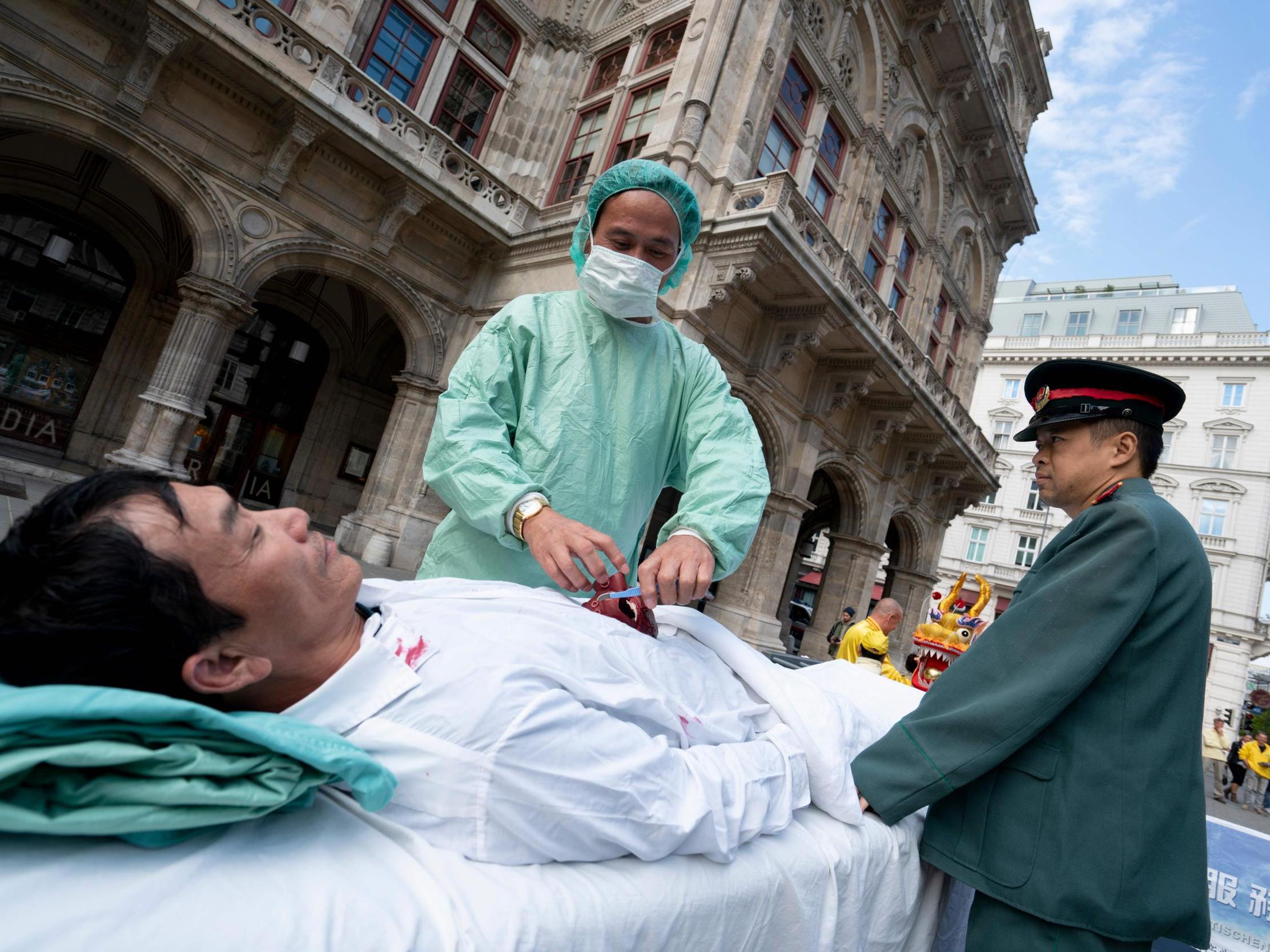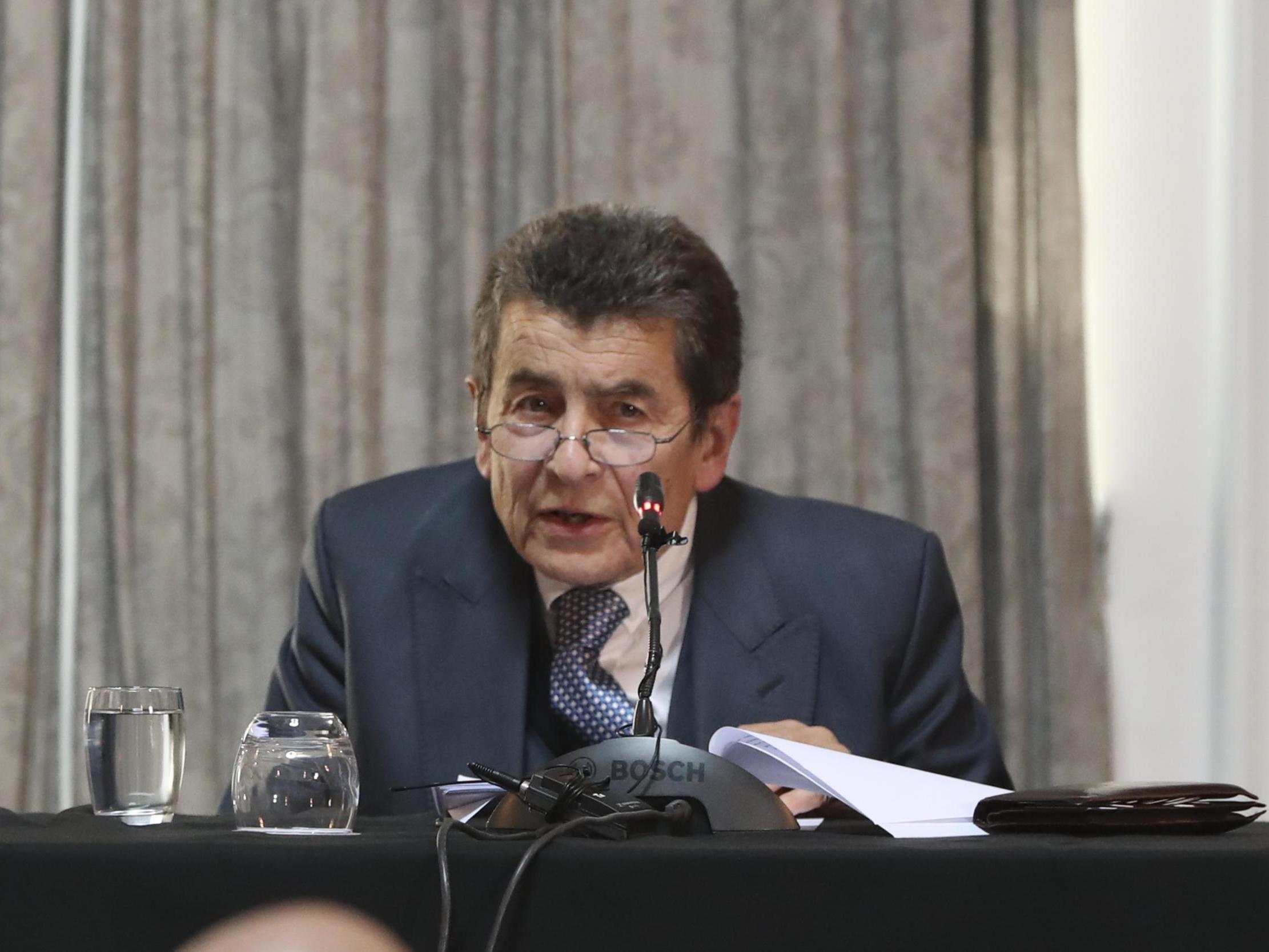China harvesting organs from Falun Gong detainees, tribunal claims
‘Very many people have died indescribably hideous deaths for no reason,’ says tribunal chair Sir Geoffrey Nice

Your support helps us to tell the story
From reproductive rights to climate change to Big Tech, The Independent is on the ground when the story is developing. Whether it's investigating the financials of Elon Musk's pro-Trump PAC or producing our latest documentary, 'The A Word', which shines a light on the American women fighting for reproductive rights, we know how important it is to parse out the facts from the messaging.
At such a critical moment in US history, we need reporters on the ground. Your donation allows us to keep sending journalists to speak to both sides of the story.
The Independent is trusted by Americans across the entire political spectrum. And unlike many other quality news outlets, we choose not to lock Americans out of our reporting and analysis with paywalls. We believe quality journalism should be available to everyone, paid for by those who can afford it.
Your support makes all the difference.China continues to kill prisoners of conscience for organ transplants, a panel of lawyers and experts claimed on Monday.
The China Tribunal, an independent panel set up by a campaign group, said there was clear evidence that forced and deadly organ harvesting had been taking place over at least 20 years.
Beijing has repeatedly denied accusations by human rights researchers and scholars that it forcibly removes organs from prisoners of conscience.
The UK-based panel said it was “satisfied” that forced organ harvesting was still taking place after hearing evidence that members of the Falun Gong group continue to be killed in the process of having their organs extracted.
“The conclusion shows that very many people have died indescribably hideous deaths for no reason,” said the tribunal chairman Sir Geoffrey Nice, a prosecutor at the international criminal tribunal for the former Yugoslavia.
Falun Gong is a spiritual organisation that China banned 20 years ago after 10,000 members appeared at the central leadership compound in Beijing in silent protest. Thousands of members have since been jailed.
The tribunal found that detainees from the group were “probably the principal source” of organ harvesting for transplant.
It was less clear if China’s Uighur Muslim minority had been victims of forced organ harvesting, the tribunal found, thought it said they were vulnerable to “being used as a bank of organs”.

Chinese government regulations say human organ donation must be voluntary and without payment, said a spokesman for the Chinese Embassy in London.
“We hope that the British people will not be misled by rumours,” said a spokesman in a statement sent before the tribunal’s final judgement was released on Monday.
The tribunal was set up by campaign group the International Coalition to End Transplant Abuse in China and was charged with examining whether crimes had been committed as a result of China’s transplant practices.
The seven-member panel found it was “beyond doubt” that forced organ harvesting from prisoners has taken place “on a substantial scale by state-supported or approved organisations and individuals” in an interim judgement released in December.
The panel said its findings were “indicative” of genocide but it had not been clear enough to make a positive ruling on that front. It recommended that international bodies investigate the issue further.
Crimes against humanity and torture have been committed against both the Falun Gong and the Uighurs, the panel claimed.
Campaigners and Falun Gong members welcomed the ruling. “Organ trafficking is often overlooked in our sector but this heinous crime needs more attention and affects us all,” said a spokesman for the Human Trafficking Foundation.
Jennifer Zeng, a Falun Gong practitioner previously held in detention camp, said she hoped the hoped the tribunal’s findings would prompt action.
“I hope more countries will pass laws to forbid their own citizens from going to China to do organ transplants,” she told Reuters. “And I do hope the international world will figure out a way to stop the killing in China right now.”
Addition reporting by Reuters
Join our commenting forum
Join thought-provoking conversations, follow other Independent readers and see their replies
Comments